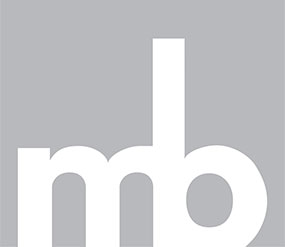By Parrish Freeman*
The Supreme Court issued a unanimous 8-0 decision this week in TC Heartland LLC v. Kraft Foods Group Brands LLC, 581 U.S. ___ (2017) (Justice Gorsuch did not participate). The decision returns patent venue law for domestic corporate defendants to its pre-1990 state, holding that “resides” in 28 U.S.C. §1400(b) (the patent venue statute) refers only to the state of incorporation, and that neither the 1988 nor the 2011 amendments to 28 U.S.C. §1391 (the general venue statute) did anything to change that. Perhaps not surprisingly, the Court did not focus upon, or even mention, any policy rationale for correcting the law (read: to address forum shopping) but relied instead on a fairly straightforward statutory construction analysis, as filtered by stare decisis. The petitioner (TC Heartland) and many of the “friend of the Court” briefs had included policy-based arguments that the Federal Circuit’s liberal reading of §1400(b) in VE Holding Corp. v. Johnson Gas Appliance Co., 917 F. 2d 1574, 1578 (Fed. Cir. 1990), had resulted in the rise of patent-plaintiff-friendly venues such as the Eastern District of Texas. The Court declined to comment on the issue, reasoning instead that the issue before it was one already answered by precedent in 1957, and that nothing had changed since then:
In Fourco [Glass Co. v. Transmirra Products Corp., 353 U. S. 222, 226 (1957)], this Court definitively and unambiguously held that the word “reside[nce]” in §1400(b) has a particular meaning as applied to domestic corporations: It refers only to the State of incorporation. Congress has not amended §1400(b) since Fourco, and neither party asks us to reconsider our holding in that case. Accordingly, the only question we must answer is whether Congress changed the meaning of §1400(b) when it amended §1391.
Slip op. at 7-8.
The 1988 change to §1391 added “under this chapter” to “for venue purposes.” The 1990 VE Holding decision from the Federal Circuit held that the result of the amendment was that §1391 dictated the meaning of “resides” in §1400, since the latter was (and is) part of the same chapter. The 2011 amendment to §1391 removed “under this chapter” but changed “for venue purposes” to “for all venue purposes,” and also added a savings clause: “except as otherwise provided by law.”
The Court noted that Congress never indicated an intent to change the law of Fourco, in either of the 1988 or the 2011 amendments. Slip op. at 8-9. The 2011 amendment, moreover, never indicated an intent to ratify VE Holding. Id. at 9-10. Further, “for venue purposes” was the language in effect at the time of Fourco, and the addition of the word “all” in 2011 did not make the already inclusive language any more inclusive. Id. at 8. The Court also found significant the addition of the savings clause in the 2011 amendment as demonstrating Congress’ acceptance of other statutes having control over venue. Id. at 9.
The TC Heartland decision will likely result in more cases being filed in Delaware, given the concentration of corporate formation there, but also in many other jurisdictions less accustomed to handling a significant patent docket. Plaintiffs determined to continue filing in the Eastern District of Texas may seek to exploit the alternative language of §1400(b)—“where the defendant has committed acts of infringement and has a regular and established place of business”—by suing big box retailers that instead of manufacturers. The only thing that is certain is that patent plaintiffs will have to think fairly deeply about venue before filing, for the first time in 27 years.
* R. Parrish Freeman chaired the American Bar Association task force on the TC Heartland venue issue and assisted, along with fellow Maschoff Brennan shareholder L. Rex Sears (and others), in drafting the ABA’s amicus brief filed in support of the petitioner TC Heartland.
